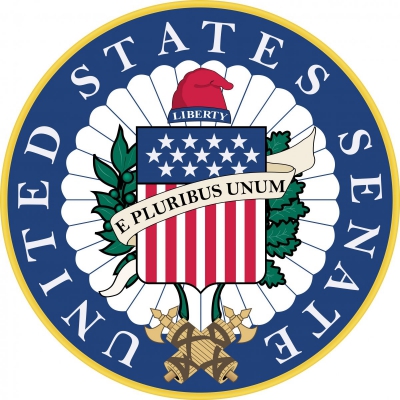The Labor Management Relations Act of 1947, better known as the TaftHartley Act, is a United States federal law that restricts the activities and power of labor unions. It was enacted by the 80th United States Congress over the veto of President Harry S. Truman, becoming law on June 23, 1947.
TaftHartley was introduced in the aftermath of a major strike wave in 1945 and 1946. Though it was enacted by the Republican-controlled 80th Congress, the law received significant support from congressional Democrats, many of whom joined with their Republican colleagues in voting to override Truman's veto. The act continued to generate opposition after Truman left office, but it remains in effect.
The TaftHartley Act amended the 1935 National Labor Relations Act (NLRA), prohibiting unions from engaging in several unfair labor practices. Among the practices prohibited by the TaftHartley act are jurisdictional strikes, wildcat strikes, solidarity or political strikes, secondary boycotts, secondary and mass picketing, closed shops, and monetary donations by unions to federal political campaigns. The NLRA also allowed states to enact right-to-work laws banning union shops. Enacted during the early stages of the Cold War, the law required union officers to sign non-communist affidavits with the government.
The United States Senate is the upper chamber of the United States Congress, with the House of Representatives being the lower chamber. Together they compose the national bicameral legislature of the United States.
The composition and powers of the Senate are established by Article One of the United States Constitution. The Senate is composed of senators, each of whom represents a single state in its entirety. Each state is equally represented by two senators who serve staggered terms of six years. There are currently 100 senators representing the 50 states. The vice president of the United States serves as presiding officer and president of the Senate by virtue of that office, and has a vote only if the senators are equally divided. In the vice president's absence, the president pro tempore, who is traditionally the senior member of the party holding a majority of seats, presides over the Senate.
As the upper chamber of Congress, the Senate has several powers of advice and consent which are unique to it. These include the approval of treaties, and the confirmation of Cabinet secretaries, federal judges (including Federal Supreme Court justices), flag officers, regulatory officials, ambassadors, other federal executive officials and federal uniformed officers. If no candidate receives a majority of electors for vice president, the duty falls to the Senate to elect one of the top two recipients of electors for that office. The Senate conducts trials of those impeached by the House.
The Senate is widely considered both a more deliberative and more prestigious body than the House of Representatives due to its longer terms, smaller size, and statewide constituencies, which historically led to a more collegial and less partisan atmosphere.From 1789 to 1913, senators were appointed by legislatures of the states they represented. They are now elected by popular vote following the ratification of the Seventeenth Amendment in 1913. In the early 1920s, the practice of majority and minority parties electing their floor leaders began. The Senate's legislative and executive business is managed and scheduled by the Senate majority leader.
The Senate chamber is located in the north wing of the Capitol Building in Washington, D.C.

1947Jun, 23
The United States Senate follows the United States House of Representatives in overriding U.S. President Harry Truman's veto of the Taft-Hartley Act.
Choose Another Date
Events on 1947
- 10Feb
Socialist Federal Republic of Yugoslavia
Italy cedes most of Venezia Giulia to Yugoslavia. - 5Jun
George Marshall
Marshall Plan: In a speech at Harvard University, the United States Secretary of State George Marshall calls for economic aid to war-torn Europe. - 15Aug
Indian independence movement
India gains Independence from British rule after near 190 years of Crown rule and joins the Commonwealth of Nations. - 30Sep
New York Yankees
The World Series, featuring the New York Yankees and the Brooklyn Dodgers, is televised for the first time. - 5Oct
Harry S. Truman
The first televised White House address is given by U.S. President Harry S. Truman.

 English
English  español
español  français
français  português
português  русский
русский  العربية
العربية  简体中文
简体中文 